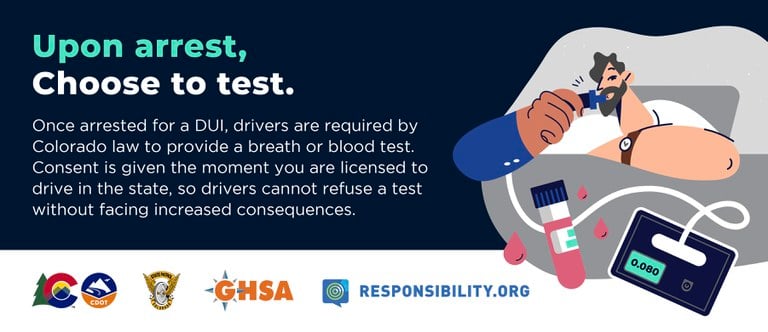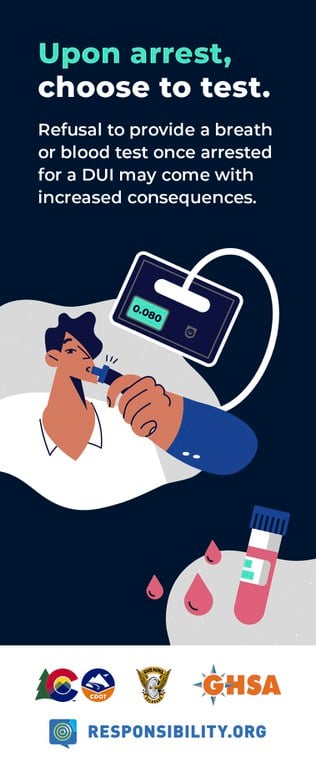Colorado's Expressed Consent Law
Upon arrest, choose to test.

By driving in Colorado, you automatically agree to provide a toxicology test if a law enforcement officer has probable cause and suspects you are impaired by alcohol or drugs, including cannabis, prescription medications and illegal substances. At the time of arrest, drivers are required by Colorado’s Expressed Consent Law to provide a blood or breath toxicology test.
Know the Facts
The Expressed Consent Law applies to all drivers in Colorado, including out-of-state residents and those without a valid Colorado driver's license. This law does not apply to roadside testing if a driver has not been arrested for driving under the influence (DUI). Drivers still have the right to refuse a roadside blood alcohol test.
There are limited defenses for refusal. A driver might argue that they did not understand their rights or were physically unable to comply with the test. However, these defenses rarely succeed, as officers must clearly explain the law and the consequences of refusal.
Consequences for Refusal
Refusal to provide a breath or blood test once arrested for a DUI may come with increased consequences. These penalties are often more severe than for failing the test, so drivers are encouraged to take the test if they are suspected of driving impaired.
If a driver refuses to submit to a breath or blood test upon arrest, they are subject to administrative penalties:
A refusal triggers an automatic suspension of driving privileges. The first refusal results in a 12-month license suspension, while subsequent refusals carry longer suspensions.
A refusal results in a requirement for the offender to have an interlock ignition device for two years following the reinstatement of their driver’s license.
A refusal can lead to increased consequences if convicted of Driving Under the Influence (DUI) or Driving While Ability Impaired (DWAI).
Refusals may result in the offender being designated as a Persistent Drunk Driver within traffic records.
Offenders may be required to get SR22 insurance — a certificate of financial responsibility required for high-risk drivers to prove they have the minimum auto insurance coverage mandated by the state if identified as a PDD.
Offenders may be required to provide proof of DUI treatment enrollment in a Level II Alcohol/Education program.
Promotional Resources
CDOT has pre-drafted social media posts, newsletter articles and downloadable graphics that are available for repurposing. Access CDOT’s Expressed Consent toolkit.

